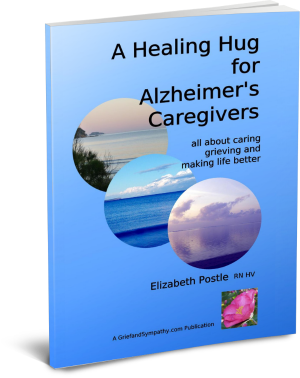Sundowner Syndrome Treatment - How to Cope
Sundowner syndrome (or sundowning) is a term used to describe why some people with Alzheimer’s disease become more restless, agitated, or combative once the sun goes down.
They may wander more, and become more distressed at this time of day and have difficulty sleeping. Often this is a characteristic of the middle stages of Alzheimer’s, and can settle down as the disease progresses. Many people are mobile and wander day or night throughout their illness anyway, but if it is a new phenomenon and only occurs after dark, it may be related to sundowning.
It is thought that perhaps the part of the brain which controls the biological clock is affected. Concepts of day and night can become blurred and time is less important to them. If you can keep routines of meal times, walks, activities and rest times going as long as possible this helps. Like children they like routines.
Minimising Sundowner Syndrome Symptoms
Whatever the cause of the agitation, caregivers can try checking several things:
- Do they need the toilet? Sometimes they know something is wrong but may have forgotten what to do or where the toilet is. Having regular toileting times or reminding them to go can help.
- Are they constipated? This too can cause some agitation for them.
- Have they eaten much today?
- Could they be thirsty? Always have mugs of water available for them to help themselves to drinks. Dehydration can cause agitation and they cannot understand why. Monitor how much fluid intake they have in a day.
- Are they sleeping too long during the day time? An afternoon nap is good but not too long or the night sleep is disrupted and evening wandering becomes more likely.
- Limit caffeine and sugar to the morning hours.
- Are they bored? Simply wondering what to do? Try giving them a tray of activities cards to look at and old magazines. A doll to dress or a cuddly toy. See our ideas for activities.
- Taking them for a walk sometimes calms and settles them. It’s good to make sure they get plenty of day light during the day as this helps the brain to adjust to the day/night cycle.
Sundowner syndrome treatment may require medication
If none of these things help, it is a good idea to consult the doctor in case a change in medication or timing of medication may help. The doctor can also rule out infections, pain, or drug interactions as the cause of the distress.
Sadly, aimless wandering and other distressing behaviours can become part of dementia in the middle stages, but there are lots of little hiccoughs along the way that can be resolved if the problems are just that the person with Alzheimer's cannot express their needs adequately.
Carers need to be able to know what their loved one is trying to tell them, the same as a new mum with her baby gets to know the differences of meaning in each cry.
Caregivers
need a medal for coping each day with the many challenges they face. Many carers
feel isolated and are scared to discuss problems in case they are seen as
inadequate. This is far from true. We all need to pool ideas on care giving. Good Luck!
For my complete guide to Alzheimer's Caregiving: click on the book to see what's included. . . .
Related Pages:
Read about coping with the grief of living with or caring for someone with Alzheimer's
For help caring for someone at home, click here
A powerful article about sundowning written by a person with Alzheimer's
- Grief and Sympathy Home
- Alzheimer's Spouse Grief
- Sundowner Syndrome Treatment
Where to get help:
Have You Considered One-on-One Online Grief Counseling?
Get Expert and Effective Help in the Comfort of Your Own Home
The following information about online counseling is sponsored by 'Betterhelp' but all the opinions are our own. To be upfront, we do receive a commission when you sign up with 'Betterhelp', but we have total faith in their expertise and would never recommend something we didn't completely approve.
Do you feel alone and sad with no support and no idea how to move forward? It can be tough when you are stuck in grief to find the motivation to get the most out of your precious life.
Online counseling can help by giving you that support so you don't feel so alone. You can have someone to talk to anytime you like, a kind and understanding person who will help you to find meaning in life again, to treasure the memories of your loved one without being overwhelmed and to enjoy your activities, family and friends again.
- Simply fill out the online questionnaire and you will be assigned the expert grief counselor most suitable for you. It only takes a few minutes and you don't even have to use your name.
- Pay an affordable FLAT FEE FOR UNLIMITED SESSIONS.
- Contact your counselor whenever you like by chat, messaging, video or phone.
- You can change counselor at any time if you wish.
- Click here to find out more and get started immediately.
- Or read more about how online counseling works here.
Sales from our pages result in a small commission to us which helps us to continue our work supporting the grieving.
Hypnosis for Grief - 10 Ways It Can Help You
Try a gentle hypnotherapy track to relax the mind. Learn how self-hypnosis can help you cope with grief at any time of the day or night.







